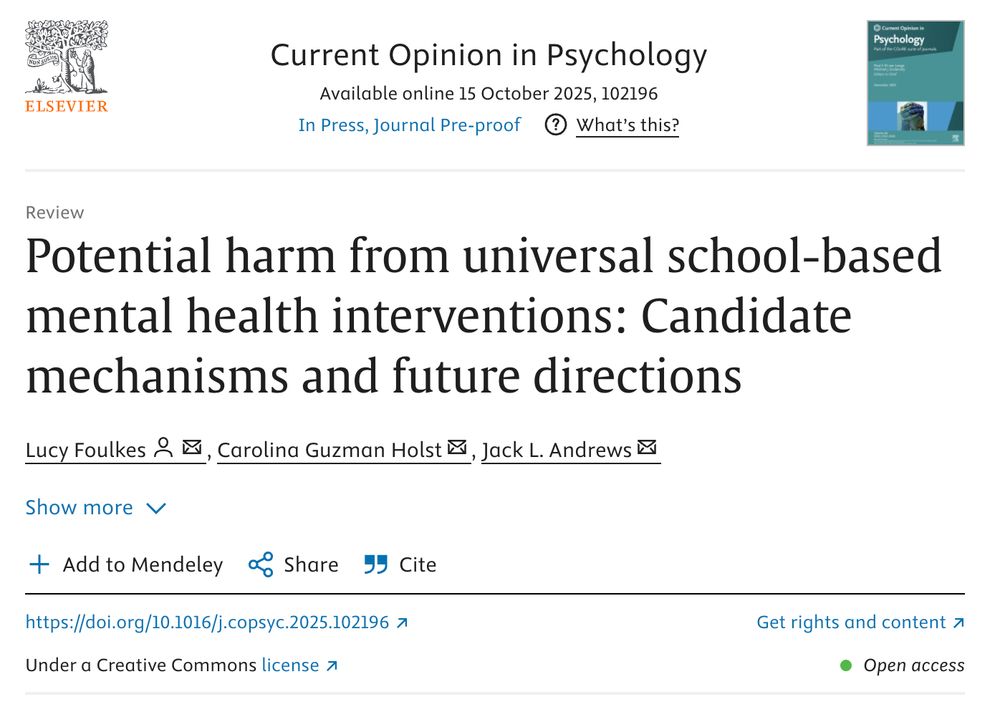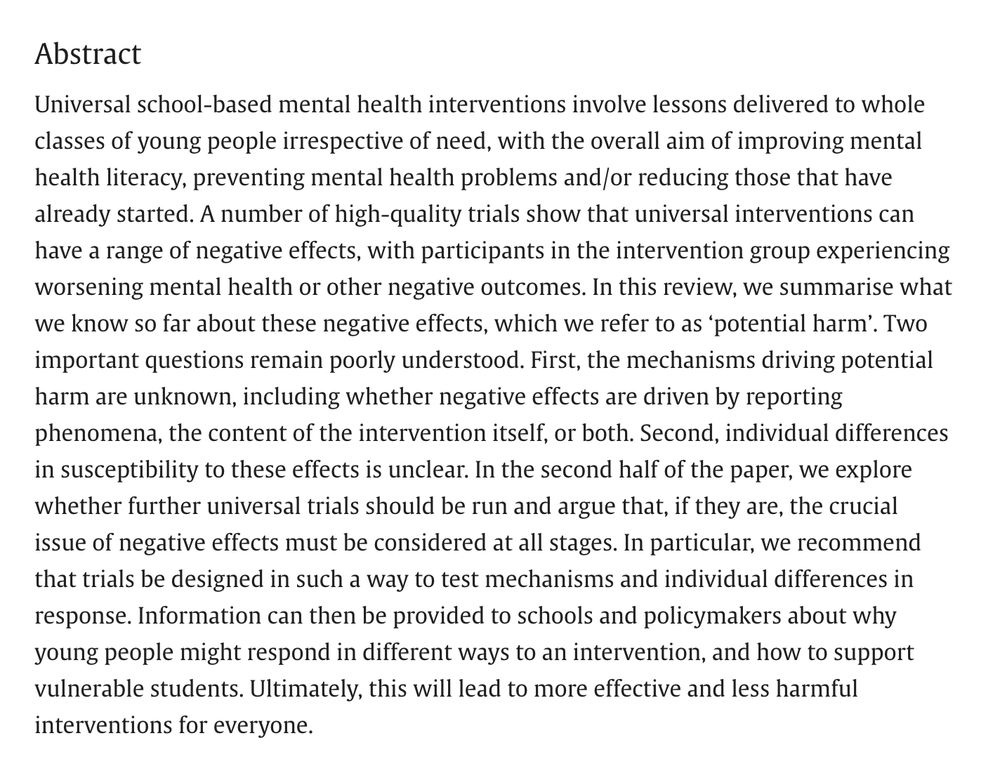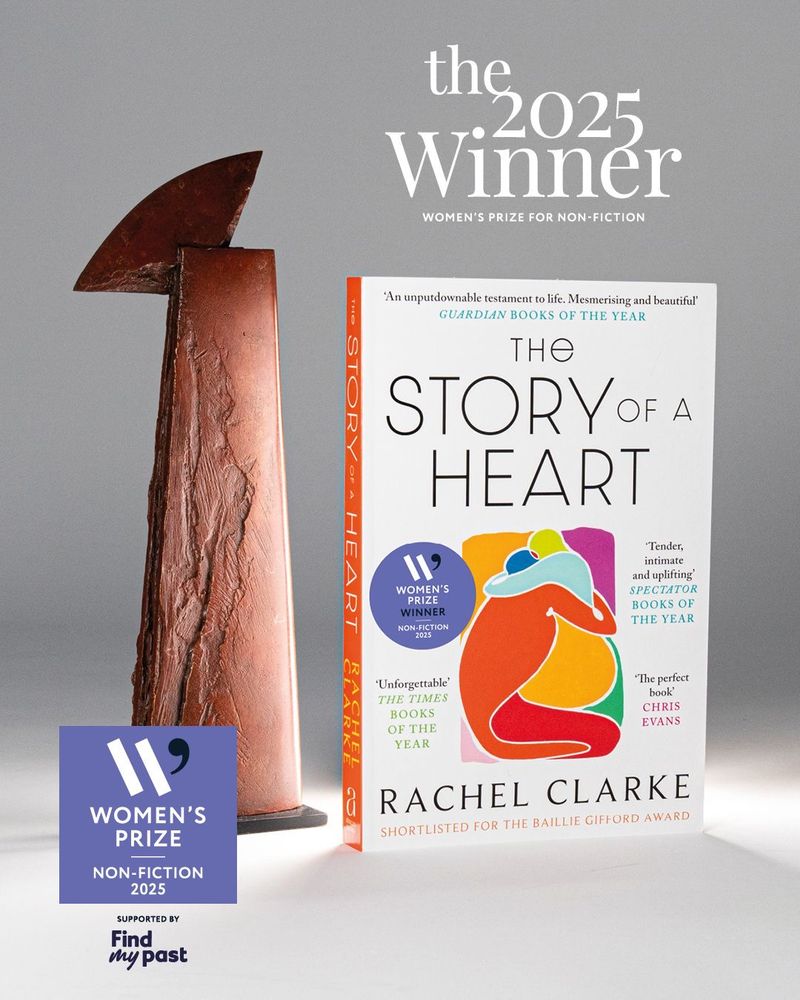
Linktr.ee/lucyfoulkes

www.penguin.co.uk/books/451093...
I was poking around Google Scholar for publications about the relationship between chatbots and wellness. Oh how useful: a systematic literature review! Let's dig into the findings. 🧵

I was poking around Google Scholar for publications about the relationship between chatbots and wellness. Oh how useful: a systematic literature review! Let's dig into the findings. 🧵
Here's what happened:
scientiapsychiatrica.com/index.php/Sc...
There should be some way to rescind the doctorate of any commentator on digital media who interprets ChatGPT output like this. I am not joking.

There should be some way to rescind the doctorate of any commentator on digital media who interprets ChatGPT output like this. I am not joking.
I've decided to write publicly about this, not just about hypermobility and its health impacts, but about how it feels when doctors don't care:
medium.com/p/4fea6398b8ba

(cont)
I've decided to write publicly about this, not just about hypermobility and its health impacts, but about how it feels when doctors don't care:
medium.com/p/4fea6398b8ba

(cont)
I've decided to write publicly about this, not just about hypermobility and its health impacts, but about how it feels when doctors don't care:
medium.com/p/4fea6398b8ba

I've decided to write publicly about this, not just about hypermobility and its health impacts, but about how it feels when doctors don't care:
medium.com/p/4fea6398b8ba

I've decided to write publicly about this, not just about hypermobility and its health impacts, but about how it feels when doctors don't care:
medium.com/p/4fea6398b8ba
www.sciencedirect.com/science/arti...
brief thread below


www.sciencedirect.com/science/arti...
brief thread below
There was variety in students’ mental health trajectories, it just didn’t link to whether they'd been in the mindfulness vs control group
This is a secondary analysis of data from the high-quality MYRIAD trial, a universal school-based mindfulness intervention
Summary below (🧵)
acamh.onlinelibrary.wiley.com/doi/10.1002/...



DLD (Developmental Language Disorder) is all about spoken language. Words and sentences are tricky for people with DLD. And people don’t grow out of it.
#DevLangDis @radld.bsky.social

This is a secondary analysis of data from the high-quality MYRIAD trial, a universal school-based mindfulness intervention
Summary below (🧵)
acamh.onlinelibrary.wiley.com/doi/10.1002/...



This is a secondary analysis of data from the high-quality MYRIAD trial, a universal school-based mindfulness intervention
Summary below (🧵)
acamh.onlinelibrary.wiley.com/doi/10.1002/...
Understanding the countermovement to online presentations of psychiatric disorder that are perceived as "faked" www.tandfonline.com/doi/full/10....
A huge online movement tries to identify people they feel are 'faking' mental illness for reasons of self-promotion.

Understanding the countermovement to online presentations of psychiatric disorder that are perceived as "faked" www.tandfonline.com/doi/full/10....
A huge online movement tries to identify people they feel are 'faking' mental illness for reasons of self-promotion.
doi.org/10.1177/2167...
🧵⬇️

doi.org/10.1177/2167...
🧵⬇️
www.penguin.co.uk/books/451093...

www.penguin.co.uk/books/451093...
www.theguardian.com/books/ng-int...

www.theguardian.com/books/ng-int...
Please read/share this 🙏
A mum recently got in touch with me to share a story about her autistic daughter’s experience of mental health lessons in school
(🧵)
Please read/share this 🙏
A mum recently got in touch with me to share a story about her autistic daughter’s experience of mental health lessons in school
(🧵)
Please read/share this 🙏
A mum recently got in touch with me to share a story about her autistic daughter’s experience of mental health lessons in school
(🧵)
These stats are shocking and I'm keen to understand what counts as having a common MH condition
(query cont below)
www.theguardian.com/society/2025...

These stats are shocking and I'm keen to understand what counts as having a common MH condition
(query cont below)
www.theguardian.com/society/2025...

- two academics start dating
- discover they are each other's terrible reviewer
- hijinks ensue
Working title: Love is Double-Blind
- two academics start dating
- discover they are each other's terrible reviewer
- hijinks ensue
Working title: Love is Double-Blind
Heartfelt thanks to everyone who gave me such generous support in writing The Story of a Heart, especially Max & Keira’s incredible, wonderful families 🩷🫁🫀

Heartfelt thanks to everyone who gave me such generous support in writing The Story of a Heart, especially Max & Keira’s incredible, wonderful families 🩷🫁🫀
I have spend the last 4 months figuring out how to do this, and...
(cont)
Got examples? Send them my way! #SciComm
See more about why www.linkedin.com/posts/maria-...

I have spend the last 4 months figuring out how to do this, and...
(cont)
What are some good papers/resources about adolescent development in the context of neurodivergence and autism? Like puberty, transition to secondary school, increased interest in peers, increased independence but in context of neurodivergence - what has been written about this?
What are some good papers/resources about adolescent development in the context of neurodivergence and autism? Like puberty, transition to secondary school, increased interest in peers, increased independence but in context of neurodivergence - what has been written about this?

